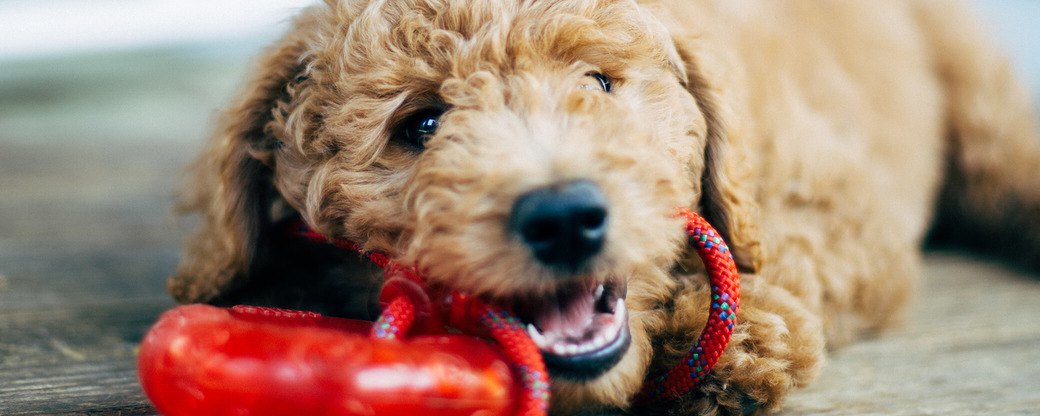The special feature of native collagen Il is the preserved original structure, as it also occurs in the body. On the one hand, collagen is an important building block of the joint cartilage, on the other hand, a supply can achieve positive effects via a very special mechanism:
In joint problems, cartilage components and thus also collagen can be released and come into contact with the synovium. The body's immune system reacts to this released collagen and triggers inflammation. However, if a small amount of exactly this collagen - and the native, preserved structure is important for this - is fed daily, the dog's immune system regularly comes into contact with this substance and over time recognises it as "normal". This process is called oral tolerance formation. The result is that released collagen in the joint is no longer recognised as problematic by the body and the subsequent inflammation does not occur.
Gencoglu et al. (2020): Undenatured Type Il Collagen (UC-lI) in Joint Health and Disease: A Review on the Current Knowledge of Companion Animals. Animals (Basel). 10(4):697.
Deparle et al. (2005): Efficacy and safety of glycosylated undenatured type-Il collagen (UC-Il) in therapy of arthritic dogs. J Vet Pharmacol Ther. 28(4):385-90.
Bari et al. (1989): Anti-type Il collagen antibody in naturally occurring canine joint diseases. Br J Rheumatol.28(6):480-6.

